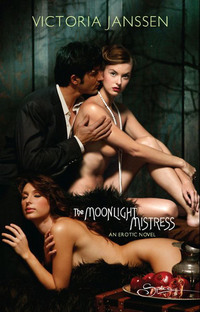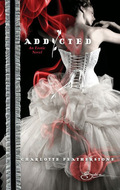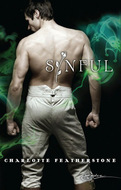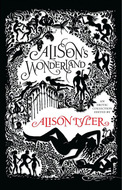Das Buch kann nicht als Datei heruntergeladen werden, kann aber in unserer App oder online auf der Website gelesen werden.
Buch lesen: "The Moonlight Mistress"
Also by VICTORIA JANSSEN
THE DUCHESS, HER MAID,
THE GROOM & THEIR LOVER
The Moonlight Mistress
An Erotic Novel
Victoria Janssen

MILLS & BOON
Before you start reading, why not sign up?
Thank you for downloading this Mills & Boon book. If you want to hear about exclusive discounts, special offers and competitions, sign up to our email newsletter today!
Or simply visit
Mills & Boon emails are completely free to receive and you can unsubscribe at any time via the link in any email we send you.
For Charlotte, for more reasons than I can put into words.
Happy birthday!
Chapter One
THERE WERE NO TRAINS TO STRASBOURG.
The hand-lettered sign on the station wall might be wrong, or something might have changed. She would ask again. Lucilla Daglish clutched her single carpetbag more closely, to protect her scientific glassware from the anxious crowd, but also for reassurance. People jostled past her in every direction, all of them speaking in high-pitched, anxious tones that blurred into a babble conveying nothing but fear. Two different babies wailed, and a larger child screeched between gulping sobs. A fat man, reeking of stale pipe smoke, elbowed her sharply in the kidney as he pushed his way behind her.
Lucilla cursed herself mentally as she tried to explain her problem to the ticket agent. Had the man in the booth needed to know about titration or some other element of practicing chemistry, she could have explained it to him in great detail. However, her more basic conversational German was lacking. Perhaps she had misunderstood his meaning, or he had misunderstood hers. Perhaps her fear had led her to misspeak.
Summoning different German vocabulary, she phrased her question again. She was an Englishwoman. She wished to travel to Paris via Strasbourg. She had a ticket. Here was her ticket. Here were her papers, proving her nationality.
No, it was the gnädige Frau who did not understand. There were no trains to Strasbourg. There were no trains at all. Germany had declared war on Russia. There would be no trains until further orders were received.
“I am not at war!” Lucilla exclaimed in English, knowing the agent would not understand her frustrated outpourings. “Why can I not travel out of this country? Surely you have no use for me here?”
There were no trains today, the agent repeated in German. Perhaps tomorrow. Or the following week. The gnädige Frau would do well to find a room in the town, before they were all taken.
She could not smash her bag into the ticket agent’s smug, condescending face because he would surely call the police. She turned sharply away. She would have to temporarily abandon her trunk here at the train station. She would return to the Institute. Perhaps she could sleep there. She had been a fool to give up her room. An utter fool. But she had not had the money to pay for an entire additional month, as her landlady had insisted, and she was leaving anyway. Or so she had thought.
She had no friends here whom she could approach for help. The other women in the boardinghouse had grouped together at meals, discussing their prospects of marriage or employment. Unlike them, Lucilla was well past the age of marriage, and she was already employed. She had never stayed longer than needed to quickly eat while perusing a journal article; she did not have time for the pleasantries, when the laboratory called to her so passionately. One could not be a friend to one’s colleagues, either, when one was a woman, and they were all men who viewed her more like a trained monkey than a chemist. Some of the men would not speak to her at all, even to exchange pleasantries. After six months in Germany, she knew no one whom she might call, even to meet her for a cup of tea.
The sun had set while she fought the crowds inside the station. Even in the dark, the hot, dusty streets were mobbed, three times as crowded as on a normal night. Compared to that morning, the whole town felt alien to her. Boys hawked newspapers on every corner. Men stood and read the papers under streetlights and in the street itself, arguing vociferously, blocking wagons, whose drivers cursed. Singing and pipe smoke, drunken cheers and angry shouts billowed from the open door of a beer garden. Some men walked purposefully, carrying small bundles—soldiers, already? All the women she saw were in a hurry, whether they hefted market baskets or towed children. Their anxiety wormed its way into Lucilla’s stomach, and she found herself almost running as she drew closer to the Institute.
The tall iron gates were closed and chained, and the gas lanterns to either side flickered merrily, mocking her.
Lucilla ran forward and grabbed the bars with her free hand. Someone would be within. She shouted. No one answered; not a blade of grass stirred. The windows were all dark. She was sweating in her sober wool suit, but her belly contracted with cold terror. She shook the gate and shouted again. “Let me in!”
“Mademoiselle Daglish?”
Lucilla whirled. A young man loomed behind her. She recalled seeing him at the Institute, marked by his height, his pronounced Gallic nose and a truly spectacular air of untidiness, currently exacerbated by his dusty clothing. Smears of dark grime marked his sleeve and his cheek, just to the left of his unostentatious brown mustache.
He was a visitor like herself, but she had never learned his specialty, or his name. He would know her name because she was the only woman ever to study at the Institute. She took a steadying breath. “Where have they all gone?” she asked in English.
“The entire faculty was summoned to a meeting at the gymnasium. My country being likely soon at war with their country, I fear I am not welcome there, nor are you,” the young man said. He spoke English fluently, though with a French accent. From beneath the brim of his hat, he looked her up and down. She had an impression of grim displeasure, though nothing in his voice had revealed it. “You cannot stand here in the street, shouting.”
“And I suppose you have a better idea?”
“I have retained an hotel room. I suppose you have not done the same?”
“Such deductive prowess,” Lucilla muttered. Her hair was coming unpinned. She shoved the curling strands away from her face, one-handed, and glanced down the deserted street. She had to calm herself and think. “There must be another way out of the country.”
“I do not wish to be shot in the dark as a spy because I am in the act of escaping,” the Frenchman said. “You must accompany me. You will stay in my room tonight.”
“I will do nothing of the sort. Mr…?”
“I am Fournier. Tomorrow we may consider our dilemma further. Come, we should go.” He turned and began walking, not offering to carry her bag. She didn’t want to release her bag anyway; it held her precious laboratory notebook as well as her glassware.
She should not go with him. It was quite improper. True, Fournier was younger than she by at least a decade, so she did not fear he had designs upon her. Or not more than a basic level of caution would dictate. But it galled her to be ordered about like a lab assistant.
Lucilla scurried to catch up with him. “I will find my own room,” she said. He could ruin her reputation, merely by being seen with her in a hotel.
Fournier snorted. “A woman alone, and a foreigner? Don’t be foolish. No one will give you a room.”
“A woman might,” she pointed out.
“If she had a room to spare. Even early this morning, I had difficulty in procuring lodging for an additional period. You are not the only person who has just discovered there are no trains. Come, we should hurry.”
He was correct. And after her long dusty walk to the train station, then her futile longer and dustier walk back to the Institute, Lucilla was in no mood to procure a newspaper, peruse its listings and then perhaps circumnavigate the entire town in the dark, alone and subject to male harassment, in search of a bed. “I wish you weren’t right,” she grumbled.
Fournier glanced over at her and smiled, a quick flash of white teeth beneath his mustache. For that moment, he looked no older than her baby brother, and twice as dangerous. Then he began walking even faster, and all her energy was consumed in keeping up. If she lost him, she would truly be in the soup.
Fournier ducked into a shop and she followed. He purchased cheese and biscuits, the only available choices. Lucilla realized she had forgotten all about food, but the need would soon become urgent. On the way out of the shop, she halted abruptly; a Polizist was demanding Fournier’s papers.
She wasn’t sure if approaching was the wisest idea, but Fournier was helping her, and she would not abandon him. She came up beside him just as the Polizist snarled an uncomplimentary phrase and tried to seize her arm. Fournier swiftly intervened, but the Polizist wouldn’t release her. She struggled in his gloved grip, dropped her bag and heard the unmistakable shattering of glass.
Fournier shoved the Polizist, hard. “Run!” he said, so she grabbed her bag and ran, her heart pounding, hearing the scuffling behind her. She ran for perhaps a block, enough to soak her in sweat, then flung herself around a corner and peered back. Fournier was fleeing down the street toward her, still clutching the wrapped package of cheese and tin of biscuits. His tie was jerked askew, his hat nearly falling off the back of his head. The Polizist lay curled on the sidewalk. She could hear him cursing.
“This way!” she said, grabbing Fournier’s arm. He shook her off but followed her down several alleys. She had no idea where she was leading him, but quick action was paramount. When she could run no more, she flung her back against a wall and gasped for breath. Fournier bent over his knees, panting.
“Are you hurt?” she asked. She felt light-headed and exhilarated at the same time.
He didn’t answer her. Eventually, he straightened and said, “This way.”
By the time they reached Fournier’s lodging, the night seemed even darker. He grabbed her hand and pulled her around the corner of the building, to the servants’ entrance. His long fingers engulfed hers. He might be abrupt and overbearing, but he’d rescued her, and defended her against the Polizist. She appreciated his warm and reassuring human touch in the midst of chaos. She was sorry when he let go, glanced around and pushed the door open. “The stairs,” he murmured once she was inside. “Second floor.”
Fournier’s room was last in a poorly lit, narrow corridor. He unlocked the door briskly and pushed her inside before slipping in after her and throwing the bolt. She sighed in relief, then nearly laughed; never before had she considered that being locked in a room with a strange man could be a good thing.
Street noise, the rumble of wagons and voices mingling like a river, pushed in through an open window. Lucilla sought out the light switch with her hand, then was glad she hadn’t tried to move farther. She saw scarcely two feet of bare floor, with perhaps another foot covered by an open rucksack and a scatter of notebooks. The room held one narrow bed with an overstuffed mattress, a small table supporting a jug and basin, and an upended steamer trunk. A hook above the trunk supported a single towel. She stood with the rucksack at her feet, near the wall. She could easily sag backward against that cool, comforting plaster and let it support her aching head. Her carpetbag felt as if it weighed a hundred pounds. Her elbows hurt from carrying it.
Fournier, the end of the bed at his back, was so close she could smell sweat and wool and the remnants of lime shaving lotion. He said nothing, instead dropping their dinner on the coverlet and futilely brushing at the dust on his charcoal jacket. He further loosened his navy tie and tossed his hat onto the steamer trunk.
Lucilla wanted to touch him again; an impulse, she was sure, caused by the close quarters and the sudden safety and intimacy implied by a closed and locked door. She was afraid. It had nothing to do with him personally. She worked closely with men every day, but she had never wanted to edge her body closer to any of them. A thought sprang from the depths of her mind. “Where will you sleep?” she asked.
Fournier snorted and shoved his hands into his pockets. “Better to ask, where will you sleep. I believe women are equal to men, and if that is so, then I should not have to yield my comfort to yours. It is hardly my fault you did not have the foresight to retain lodging. Besides, I cannot fold myself into this small patch of floor, and I cannot sleep in the corridor.”
His tone was harsh, but he made sense, and there was no use arguing when she agreed with him. Beggars could not be choosers. Lucilla squeezed past him and set her bag atop his steamer trunk. “No, you can’t sleep in the corridor,” she said after a moment’s thought. “Any foreigner is at risk at the moment, and if that Polizist finds us…” She could not deny the hostility and suspicion she’d felt in the air, steadily intensifying over the past few days.
“Many Germans still hate the French. I imagine they will find an excuse to declare war on us soon, and they know all Frenchmen have served their time in the army,” he said. “Any one of us might be a soldier.”
“Or a spy. This would be a wonderful opportunity to spy, if only I knew what to look for.”
Fournier grinned, just as briefly and startlingly as before. He blew breath out his nose, and she decided he was nervous, too. She began to feel more kindly toward him. He said, “Perhaps we will spy on the kitchen later, if we grow weary of cheese and biscuits. There is a bath down the corridor. I will guard the door, if you will do the same for me.”
“I have nothing clean to wear,” Lucilla said. Thinking she would be leaving today, she’d sent her trunk ahead, and her carpetbag held only toiletries and a change of linen for emergencies. And, of course, broken glass. She supposed it didn’t matter so much, not really, but she felt as if more had been broken than her glassware.
Fournier ducked his head. “A shirt,” he suggested. As if in afterthought, he added, “I am quite tall enough for it to be decent. Pah! Though why we should be concerned with niceties eludes me. It is obvious we no longer live in a world that rewards us for cherishing such concerns.”
Lucilla had no answer for him, not when her shoes chafed, her bust bodice chafed and the collar of her suit jacket chafed worst of all. “Thank you,” she said. “Though perhaps you should bathe first. I don’t want to guard you wearing only your shirt.”
“You are very sensible,” Fournier said, sounding surprised. Belatedly, he added, “And gracious.” Lucilla very carefully did not respond with her true thoughts at his belated compliment, which were uncharitable. As he stripped off his jacket, she held up her skirts and hurdled the rucksack, to sit on the end of the bed. She didn’t want to leave this room barefoot, so she would have to wait longer for the pleasure of removing her half boots, but simply being off her feet was lovely, and she sighed in relief. She unpinned her hat and set it aside.
Fournier reached for the towel, and it was then she saw his shirtsleeve was torn and stained with blood. “You’re injured,” she said, in case he’d planned to hide it from her.
“I was not quick enough to evade all injury,” he said, draping the towel over that arm, concealing it. He rummaged in the rucksack and produced a shaving kit. “That was from a disagreement earlier this morning. It’s a small price to pay for having later punched a rude Polizist in a tender place. You may borrow my soap. We must share the towel.”
“Have you cleaned the wound?” she pressed. “I am trained as a nurse.” At his incredulous look, she added, “One must earn one’s living somehow.”
Fournier shook his head. “You study chemistry at the Institute and go home to wipe runny noses.”
“There aren’t so many places that will hire a woman chemist,” Lucilla said sharply. “Perhaps you haven’t noticed, France being full of them. Or no, I’m sorry—those women are cooks, aren’t they?”
Fournier snatched away the towel and held out his arm to her. Deciding to accept this as a peace offering, Lucilla extracted his cuff link and carefully folded up his sleeve, revealing a strong, flat wrist that appeared and felt sound except for bruising. That would be painful enough, and likely worse tomorrow. She could not push the sleeve above his elbow, but the rip helped her to expose a long, bloody scrape, deep enough to hold street grit. The dirt on his jacket sleeve, she realized, had actually been blood. He must have hit the ground forcefully to rip through a layer of tweed as well as his shirt. Or had there been a knife involved? He hissed sharply when she probed the wound. “Your hands are not clean,” he snapped.
“They will be soon enough,” she remarked. “Come along to the bath. I’ll clean it for you properly. You’re lucky I carry a kit with me.”
Fournier smiled wryly. “If this is the first wound in a war, perhaps I can obtain compensation for your labors.”
“Monsieur Fournier—”
“Yes?”
“Thank you. For rescuing me.”
“It’s nothing,” he said, not looking at her. He hurried down the corridor.
Lucilla hadn’t dealt with so simple an injury in a long time, as she specialized in nursing surgical recoveries. She’d forgotten how finicky a job it was to pick bits of grit from a wound. Tweezers helped. Her patient cursed freely each time she touched him, but seemed content to hold still when she pinned his hand beneath her arm. She could feel its warmth on the side of her breast, even through her clothing. The pressure felt good. She almost wished she could shift his hand a bit higher. She flicked her eyes to his. “This is not an invitation, young man.”
He sighed. “A great pity, Mademoiselle Daglish.” She could not tell if he was joking. She’d heard Frenchmen could be importunate. In her experience, all men could be importunate; but some could choose not to be. Emotion washed over her at this thought, almost lost as she concentrated on his wound. She realized she felt disappointed. A man bent on seduction would have been a welcome distraction just now.
After she’d finished her ministrations, she leaned against the wall outside the bathroom, plotting routes out of Germany. She did not have a good map in her head or in her bag. If she had to walk, she would be in sore trouble. Perhaps she could beg a ride from some other refugee. She need only reach a neutral country, such as Holland or Belgium. Would the market be open, to purchase supplies? Would she be able to take anything with her?
Much as she preferred to stand on her own feet, it would help to have a male companion such as Fournier on the journey. Any companion would be an advantage, but a man’s presence often rendered the woman with him negligible to the view of other men, hiding her in plain sight in the established role of wife or dependent relative. A woman alone drew the attention of predators, and she felt sure predators would take advantage of the current chaos. It might be a very good thing indeed that she and Fournier had encountered one another. She would broach the topic with him in the morning.
He might refuse. It made more sense for them to escape together, but perhaps he wouldn’t see that. Could she persuade him in some way? She thought of seduction and laughed into her hand, flushing up to her hairline. Before her fiancé’s betrayal, all those years ago, she had definitely enjoyed being seduced.
When it was her turn for the bath, she almost wept when fresh hot water poured from the tap. She didn’t dare soak too long—she feared encountering other guests, even with Fournier’s protection—but she relished every moment of what the previous day had been a utilitarian activity. She had no idea when she might have a bath again. She might find herself walking to France before she could catch a boat home.
Fournier had given her his silk dressing gown as well as a clean white shirt. The shirt fell past her knees and the dressing gown, redolent of shaving soap and male skin, dragged the floor. She belted it to ankle length and cautiously stepped into the corridor. Fournier waited for her, leaning against the wall and scribbling in a notebook with a stub of pencil. Muffled voices emerged from other rooms, but she saw no one else. Perhaps everyone had gone to ground. She felt huddled inside her own mind, too tired right now to think and plan any longer. She envied Fournier, able to work even in the midst of dangerous upheaval.
Her mind circled back to the sleeping arrangements. She could share. She’d shared a bed with her little brother, Crispin, when he’d been small. Fournier would be no different. He scarcely seemed aware of her as a woman. She discounted the moment when she’d been working on his arm. He’d only been joking with her.
When they reached the room, she bolted the door. Having already placed a dry dressing on Fournier’s arm, she put away her first-aid kit, then slipped out of her borrowed dressing gown. Its dubious protection would be too hot and awkward to wear for sleeping. The air from the window felt a little cooler than earlier; the voices on the street less frequent, but more strident. She shivered when one basso voice abruptly yelled invective, of which she caught only one word: coward.
Fournier straightened from tucking away his shaving kit. He seemed about to speak, then looked to the side. Lucilla waved to the bed. “You first. If we’re to share, you needn’t be overly concerned about modesty.”
Fournier nodded once and stripped down to his combinations, which covered him from biceps to knees. He then knelt and reached into his rucksack once again. He produced a pistol and loaded it, quickly and efficiently. Lucilla had always avoided seeing Crispin handle his sidearm. She had never been so close to a deadly weapon before. Her heart went into her throat as he handled the gun, expecting it to go off at any moment. Fournier set it carefully on the upended steamer trunk before climbing into bed. “You can shoot?” he asked. “You could shoot a man?”
Slowly, numbly, Lucilla shook her head.
“If you must, aim for his body. Hold the gun with two hands. Squeeze the trigger, do not yank. Be gentle with it, and be prepared for it to—” He jerked his hand. “Do not let it fly from your grip. You have six shots.”
Lucilla wasn’t sure what to say. At last, she settled for “Thank you.”
“Let’s hope it will be of no consequence,” Fournier said. He turned to face the wall and tugged the bedding over his shoulder. Lucilla loosed her hair, switched off the electric light and climbed into bed beside him. She could not lie flat without touching him. She did not mind the brush of his warmth against her hip and shoulder, for she lay awake, nerves thrumming, staring up at the ceiling in the faint light from the window. Gradually, the street noise quieted, and she could hear Fournier’s steady breathing and the ticking of his wristwatch. She closed her eyes, but her heart raced and her leg muscles twitched as if they wanted to run. Where they touched, the heat spread and sank through her skin. She shifted restlessly.
At least an hour had passed when Fournier said in a low rumble, “You aren’t sleeping.”
“Nor are you,” Lucilla replied as softly as she could manage.
Fournier turned over. He threw his uninjured arm over her ribs and pulled her to him. “Closer,” he said. “If you please.”
His arm was like a hot brand. Lucilla could no longer deny that she wanted to touch him. She eased against his body. She would definitely never sleep now. Cautiously, she rested her hands on his arm, which now wrapped snugly around her, beneath her breasts.
“Better,” he pronounced. He nestled his face into her hair, which was still damp from the bath. She could feel his breath fluttering on her scalp, and it flushed her entire body. He murmured, “This is better still.”
She’d thought at first he’d meant to be seductive, but clearly she’d been wrong, for he made no further move. He was only comforting the dried-up spinster. It was crazed to feel disappointed that she was not being ravished. Still, the embrace was nice. More than nice. She pressed her back into his chest, heat soaking into her through two layers of thin cotton, sensation rushing out from even the slightest friction as they shifted against each other. She remembered the heat of a man’s body, sweat springing into being and melting skin to skin; she remembered from her few nights with the man who would later betray her. She had never been held so closely since, and until now the memory of how it had felt, the safety of it, had been tainted for her.
Patience, Lucilla, she told herself. You might taint this moment yet.
She closed her eyes and inhaled scent and warmth, hers and his mingled. A decorous woman would protest even this, given their dishabille. She had passed decorous simply by being in this hotel, in this room, in this bed. She closed her eyes and felt their hearts beating, concentrating on the sense of wellbeing that cocooned her, trying to sear it into her memory against future need. She didn’t dare move, for fear it would end.
Fournier’s voice caressed the inner tunnel of her ear. “This is permissible?”
“Yes,” she said. Her throat tightened. Foolish to want more. Foolish. She did not even know this man. This young man. Far too young for her.
“Is it polite among the English to ask if you have experience?”
Lucilla’s breath stopped as the world flipped. She should not have been surprised. The world had flipped more than once today already. She drew a deep breath. “I don’t think so,” she said. “That seems silly just now, doesn’t it?”
“Well?”
He sounded as impatient as if he had demanded coffee from a recalcitrant waiter. Lucilla laughed a little. He was clumsier than she in these matters. “I was engaged to be married, once. It ended badly, very badly. Yes, I am experienced.” She paused as a thought occurred to her. “And you?”
Fournier snorted, a ticklish sensation against her neck. “Somewhat.”
A delicious sense of freedom flooded her to her bones. Lucilla rubbed her hand along his arm where it lay against her. She liked its heat and the contrast of soft skin over firm muscle, and the friction of hair beneath her palm. He must have liked it, too, for he shifted a little closer to her. She wondered how his skin tasted. “Have you asked me this for a reason?”
“You are toying with me.”
“Teasing,” she corrected giddily. She lifted his arm to her mouth and kissed the back of his hand. It didn’t taste of anything in particular. She would need to taste some other spot, such as—her breath caught at the thought—the crease where his leg met his thigh. “I’ve never done this with a stranger. Or anyone, except the one.”
“I do not make a habit of seducing women,” Fournier said. “If that is what you wished to know. I have always wondered why numbers are considered to be a factor in these matters, if once is enough to be damning.” He paused, rubbing his nose against the back of her neck. Lucilla shivered at the odd but pleasurable sensation. “It was not my plan to seduce you when I brought you here.”
“Oh, surely not,” she said. “You were so gallant. Why, when you offered to share your towel, I declare, my heart was all aflutter.”
She couldn’t help herself; she began to laugh at the absurdity of it all, at the circumstances that had led her, a spinster chemist, to find herself nearly naked in a bed in Germany with a French scientist. She didn’t even know his field of specialization.
That thought sent her off again, and she laughed until her gut hurt. At some point, she gasped out a few words of explanation and Fournier laughed with her. Seemingly without transition, she was on her back and his face loomed above her. She lifted her hand and traced his mustache with her finger, then he was kissing her, first gentle brushing and nibbling, then deep kisses full of bristles and heat and wet swirling sensation, whirlpools sucking her down.
Lucilla clasped her hands behind his neck, stroking the close-cropped hair there, then tangling her fingers in the longer hair above and trying to drag him closer. Fournier pulled away from her mouth instead, and began nipping her throat, each scrape of his teeth like a lightning bolt across her skin and into her sex. He was working his way lower; she felt his fingers at her shirt buttons, slipping one free, then another. His hands circled her nipples and traced designs on the skin of her breasts before he settled in to suckle at her, the pulls of his mouth echoing in her womb. His right hand traveled slowly down her chest, then her belly, unbuttoning her shirt and smoothing the flesh beneath.
She turned to flame. She shifted desperately, lifting her hips to him, her hands roaming over his back, trying to feel every shift of muscle. This was better, so much better, than it had been with the despicable Clive. Already Fournier had spent more time pleasing her than her former fiancé. Of whom she had planned never to think again. She banished the fleeting thought of him easily, as she had an overwhelming distraction at hand and a hard, hot erection digging into her leg. She found the bottom of Fournier’s vest and worked it upward. His skin sang to her palms.








